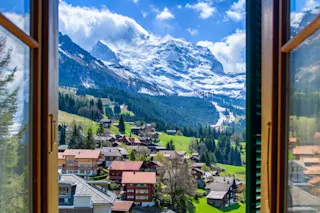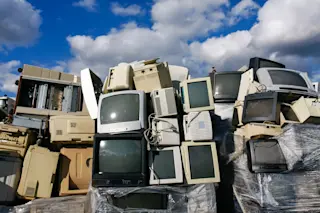One of these days, I'm going to figure out a way to talk about "global change," not just climate change. You know, because it's such a catchy term that rolls off the tongue. Sarcasm aside, to lots of smart people, "global change" is where the serious action is at. Right now. As Jonathan Foley wrote two years ago in Yale Environment 360:
I worry about this collective fixation on global warming as the mother of all environmental problems. Learning from the research my colleagues and I have done over the past decade, I fear we are neglecting another, equally inconvenient truth: that we now face a global crisis in land use and agriculture that could undermine the health, security, and sustainability of our civilization.
Of course, you can't just dwell on impending ecological ruin any more than you can dwell on imminent climate doom. It's a bummer. And like melting ice sheets and rising seas, the planetary ecosystem-wide problems underlying "global change" are abstract, immense and no competition for The Real Housewives of Beverly Hills. That said, last year a useful framework articulating the interconnected challenges was laid out in the abstract of this essay in Science:
Tremendous progress has been made in understanding the functioning of the Earth system and, in particular, the impact of human actions. Although this knowledge can inform management of specific features of our world in transition, societies need knowledge that will allow them to simultaneously reduce global environmental risks while also meeting economic development goals. For example, how can we advance science and technology, change human behavior, and influence political will to enable societies to meet targets for reductions in greenhouse gas emissions to avoid dangerous climate change? At the same time, how can we meet needs for food, water, improved health and human security, and enhanced energy security? Can this be done while also meeting the United Nations Millennium Development Goals of eradicating extreme poverty and hunger and ensuring ecosystem integrity?
Those are mighty tall tasks, but that's why there are conferences like the Nobel Laureate Symposium on Global Sustainability, which is happening this week in Stockholm, Sweden. Interestingly, I noticed in the description of the conference that the connective thread of the agenda is climate change:
This third Nobel Laureate Symposium, which follows from previous meetings in Potsdam and London, will focus on the need for integrated approaches that deal with the synergies, conflicts and trade-offs between the individual components of climate change. Climate change, decreasing biodiversity, deteriorating ecosystems, poverty and a continuously growing population all contribute to reducing the planet's resilience and may have catastrophic implications for humanity. Each of these problems has attracted great attention from the international community, but they have invariably been considered in isolation, with little or no regard to the interactions between them. It is time to change this approach.
I agree. But I'm not sure putting humanity on trial is the best starting point. The conference comes on the heels of this meeting in London, and is organized around three main themes: the dominant role of humans as a planetary force of change; the societal/ecological relationship; and the potential for large-scale sustainability solutions. It'll be interesting to see what comes out of the conference, but what happens afterward, when all the scientists and luminaries retreat to their separate silos, is what matters most.













